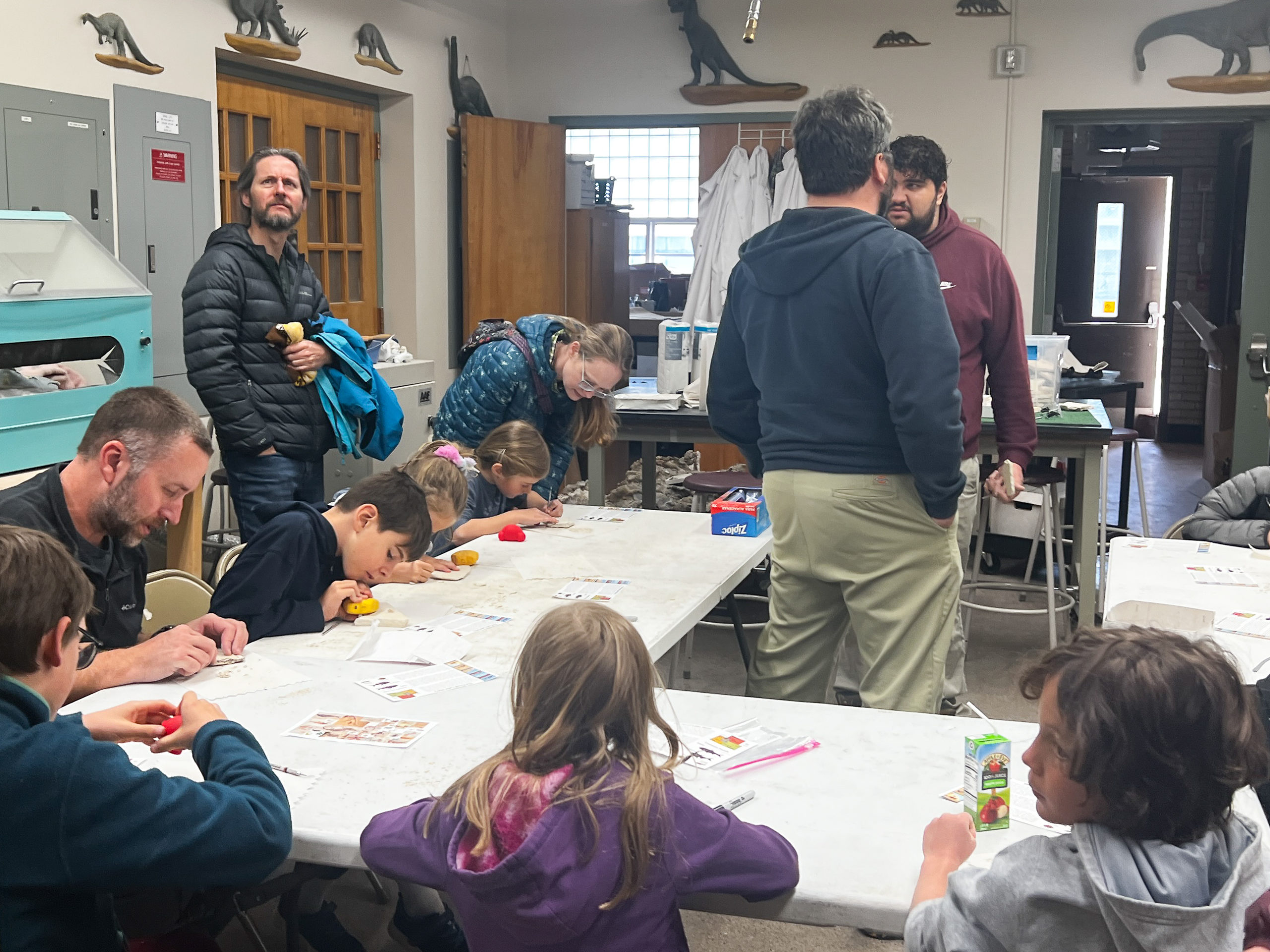Skye Swoboda-Colberg began dumpster diving eight years ago when he was in high school and he continues the practice today as a UW graduate student.
“I rode my bike to Safeway and there’s this alleyway out back, and one day I just kept going and noticed dumpsters and looked in and low and behold I found something,” he said. “I kept going back and finding stuff, and it developed from there.”
Swoboda-Colberg, a Laramie native, said he is an “opportunistic” diver, as he does not need the food to sustain him, but rather to supplement his diet.
This is not the case for everyone.
Nancy Sindelar, Laramie local for 39 years and Veteran’s for Peace chapter 65 contact, is a regular dumpster diver who befriended Swoboda-Colberg at a dumpster five years ago. She said there is a regular community of divers and many rely on the found food to feed themselves and their families.
“It’s a bunch of people that need to eat,” she said. “We share with each other. We work together.”
For Swoboda-Colberg, his purpose of diving is to save food from being wasted. He typically goes every other day during the summer and no less than once a week during the school year.
“It is big for me because of the mass production of meat and poultry, it’s a shame to have a chicken growing up in a little area and then kill it, package it and then it just gets thrown in a dumpster,” he said. “I didn’t like that, so I think it would give its life more meaning if I dive for it.”
A typical day of diving is rather simple. Swoboda-Colberg rides his bike to the various dumpsters in the early evening, takes what he deems usable and goes home and cooks up a tasty meal.
He noted he only goes during daylight, as he is not trying to hide what he is doing.
“The other thing you have to realize is you have a box of apples in the store, they take that cardboard box and put it in the dumpster,” he said. “It’s just sitting there. It’s not like it’s a big jambalaya of stuff everywhere you know. It’s a lot more clean than you’d expect.”
Sindelar said she takes produce and the occasional sourdough bread loaf; however, she added she is careful with meats. She will not scoop up any raw red meat, except for the occasional package of bacon, and she uses the ‘sniff test’ to determine whether seafood is worthy.
“You have to be careful about sanitation because dumpsters are nasty – broken eggs get in there, yogurts, dairy and you know it gets coated and coated and you know it gets nasty,” she said.
Swoboda-Colberg, however, is bolder than most.
Aside from the regular finds like produce, breads and baked goods, he will also take meats, especially in the colder months. Even in the summer, he will take sushi if the expiration date is that same day, as he equates it sitting in the dumpster to sitting in a hot car ride from the grocery store to one’s refrigerator.
He noted he has never had food sickness in the eight years of being an active diver.
Rebecca Squires, Safeway front-end manager, disagrees with Swoboda-Colberg’s assertion that dumpster food is safe for consumption. Squires said all of the discarded food is not safe to eat, as it is expired or damaged.
“Well, dumpster diving is really not a problem because we really don’t get rid of a lot of things,” she said. “We don’t throw away a lot of good product.”
The only time Squires has witnessed a multitude of divers was after a freezer fire a couple weeks ago where a lot of food was discarded.
Safeway also started a program where it donates expired bread and produce to Interfaith, an organization that holds food donations for those in need.
“I know dumpster diving happens, and it’s upsetting, but there are circumstances that allow people to be in that situation,” Squires said. “It doesn’t make me upset. I more so want to help that person, buy them a meal, buy them groceries.”
Although the food may be expired, Swoboda-Colberg said he disagrees it is inedible.
“I’m sure you might have bought a carton of milk and noticed it lasts about a week after you buy it,” he said.
Swoboda-Colberg and Sindelar both agreed one of their best finds was $300 worth of fine cheeses. Upon finding the loot, Sindelar called Swoboda-Colberg to help her load the cheese into a car where they divided it up amongst themselves and fellow divers.

Surprisingly, the diving community is not competitive or possessive with their finds.
“If somebody had found some stuff and I show up or vice versa it’s very typical to share,” Swoboda-Colberg said. “I’ve never had a single experience were it was aggressive or uncomfortable.”
Occasionally the dumpster finds are not always food.
A specific dive most memorable to Swoboda-Colberg took place after Valentine’s Day several years ago. Him and his friend found three-dozen bouquets of roses and proceeded to hand them out at the Ivinson Home For Aged Ladies retirement center.
Another time Swoboda-Colberg uncovered a thrown out Xbox. Swoboda-Colberg said he and his friends still play it to this day.
Swoboda-Colberg also said he does not feel guilty for taking dumpster items. He added that as long as he does not enter the dumpster, which often is unnecessary as it is overflowing; nothing he is doing is illegal.
He does, however, try to leave some of his finds for fellow divers.
“I wouldn’t get greedy. I know that other people rely on it,” he said.
When Swoboda-Colberg began diving he said there was only a small community; however, after the 2009 economic crisis, Swoboda-Colberg said he noticed dumpster diving has become a sub-culture made up of people older than him.
Sindelar, who is part of that culture, said she feels edible food should not be in the dumpster in the first place, but as long as it is there people should take it.
Sindelar and Swoboda-Colberg both said a possible solution to reduce food waste is for grocery stores to donate more items to the Food Bank and Soup Kitchen.
Whether dumpster diving is a societal problem or environmental benefit is debatable; however, Sindelar said with the population growing and the climate changing people need to alter their ways.
“We need to work together. We need to see each other as just as valuable as we are,” she said. “We need to share. We need to stop being so wasteful.”
As for Swoboda-Colberg, he said he understands some people find dumpster diving gross, but for him it has become a part of his life, and even more, a way of coping with food waste.
“Everybody has there preferences and comfort levels, and hey, you got to respect that,” he said. “I’ve been doing this for so long I don’t really think about it.”


